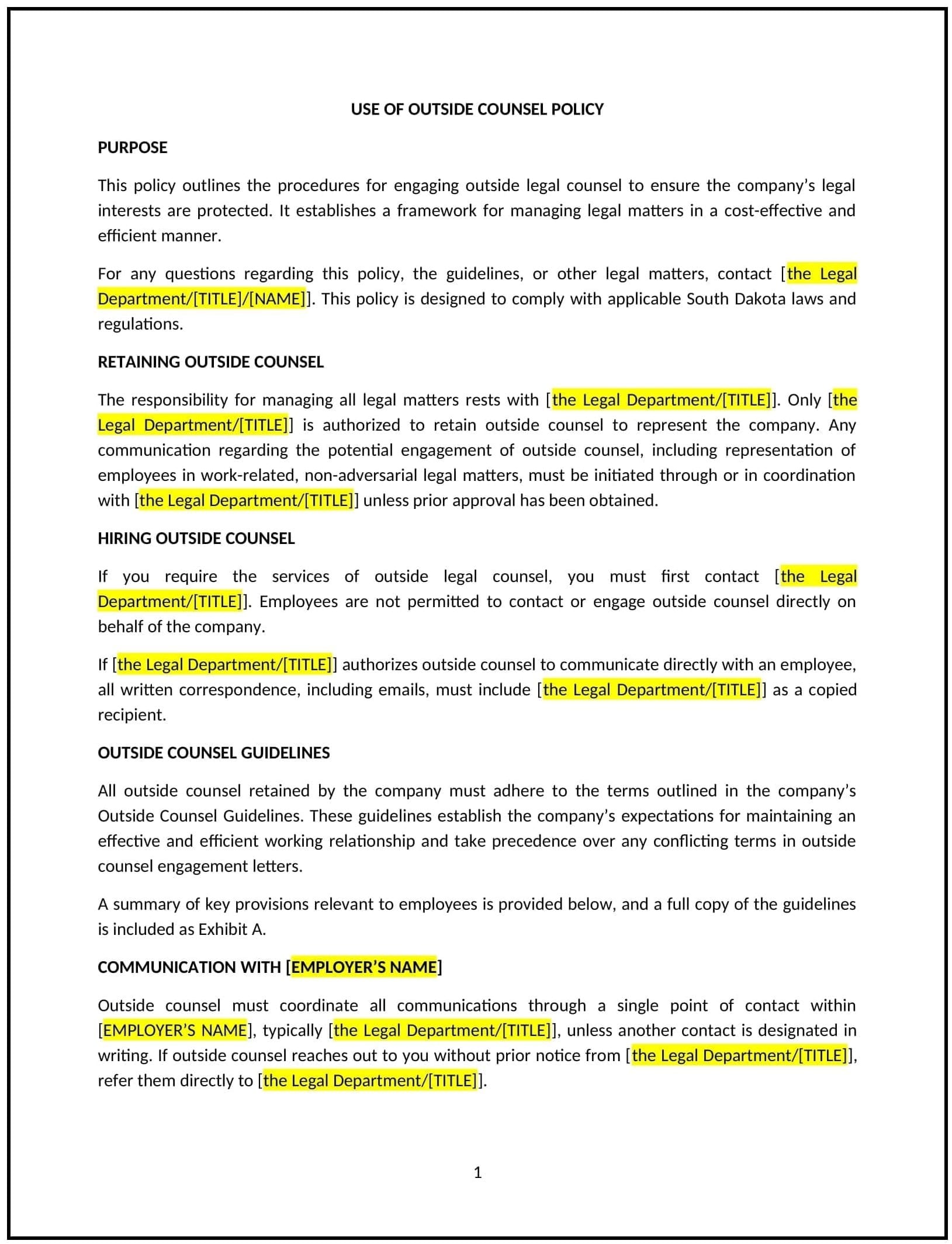Use of outside counsel policy (South Dakota): Free template
Got contracts to review? While you're here for policies, let Cobrief make contract review effortless—start your free review now.

Customize this template for free
Use of outside counsel policy (South Dakota)
This use of outside counsel policy is designed to help South Dakota businesses establish guidelines for engaging external legal counsel. It outlines procedures for selecting, hiring, and managing outside attorneys to ensure alignment with business needs and legal requirements.
By adopting this policy, businesses can effectively manage legal matters, reduce costs, and align with general best practices for legal representation.
How to use this use of outside counsel policy (South Dakota)
- Define scope: Specify the types of legal matters that require outside counsel, such as litigation, regulatory compliance, or specialized expertise.
- Set selection criteria: Provide guidelines for evaluating and selecting outside counsel, including experience, expertise, and cost-effectiveness.
- Establish engagement procedures: Outline the steps for hiring outside counsel, such as signing engagement letters and defining the scope of work.
- Monitor performance: Include processes for reviewing the performance of outside counsel and ensuring they meet expectations.
- Address conflicts of interest: Require outside counsel to disclose any potential conflicts of interest before engagement.
- Train internal teams: Educate employees on when and how to engage outside counsel in accordance with the policy.
- Review and update: Assess the policy annually to ensure it aligns with evolving business needs and legal requirements.
Benefits of using this use of outside counsel policy (South Dakota)
This policy offers several advantages for South Dakota businesses:
- Ensures effective legal representation: Provides a structured approach to selecting and managing outside counsel.
- Reduces costs: Helps businesses negotiate favorable terms and avoid unnecessary legal expenses.
- Aligns with best practices: Demonstrates a commitment to ethical and efficient legal management.
- Enhances accountability: Provides a framework for monitoring the performance of outside counsel.
- Mitigates risks: Helps businesses address legal matters promptly and effectively, reducing potential liabilities.
Tips for using this use of outside counsel policy (South Dakota)
- Communicate the policy: Share the policy with employees and include it in the employee handbook.
- Provide training: Educate employees on when and how to engage outside counsel in accordance with the policy.
- Monitor compliance: Regularly review engagements with outside counsel to ensure adherence to the policy.
- Address issues promptly: Take corrective action if outside counsel fails to meet expectations or violates the policy.
- Update regularly: Review the policy annually to ensure it aligns with evolving business needs and legal requirements.